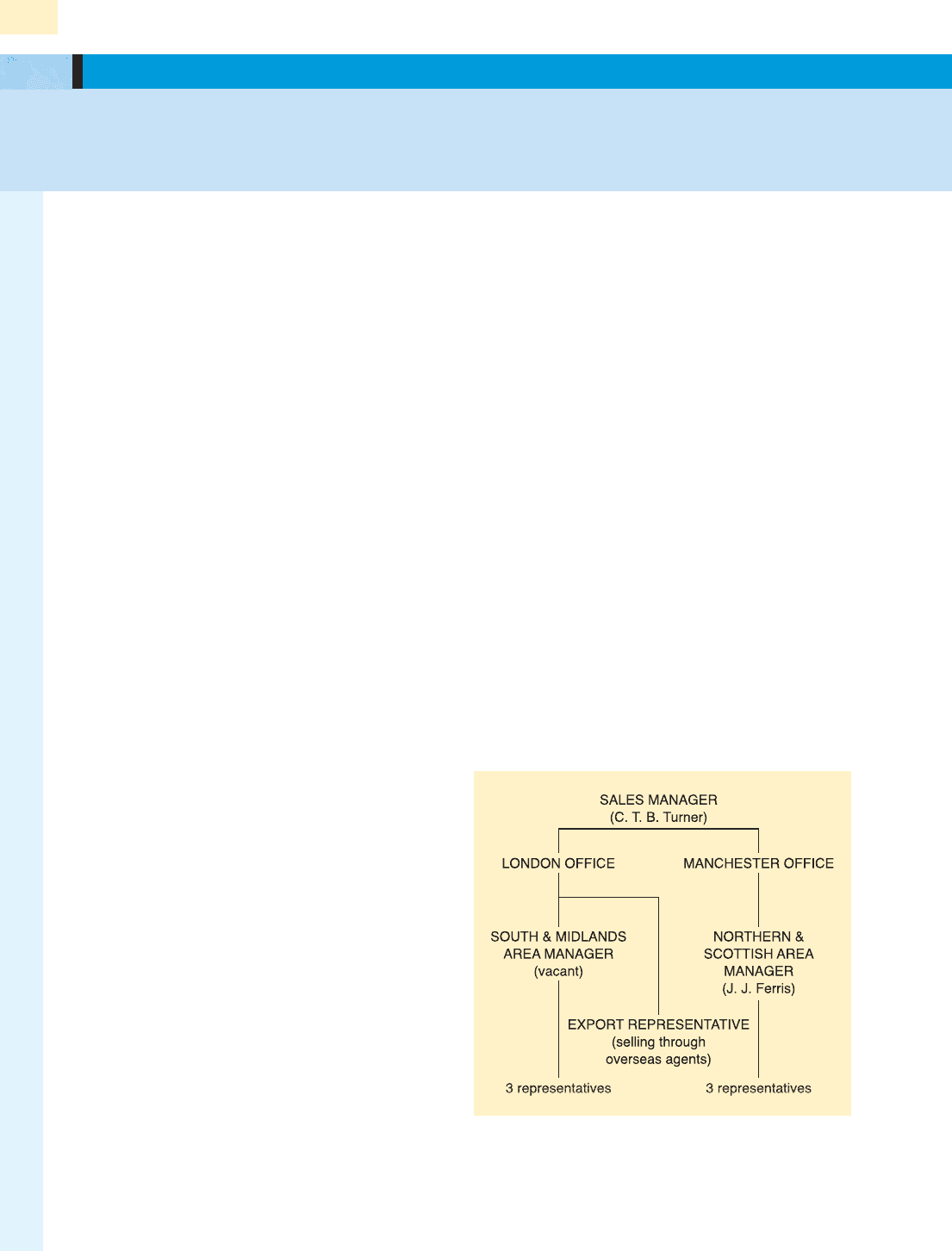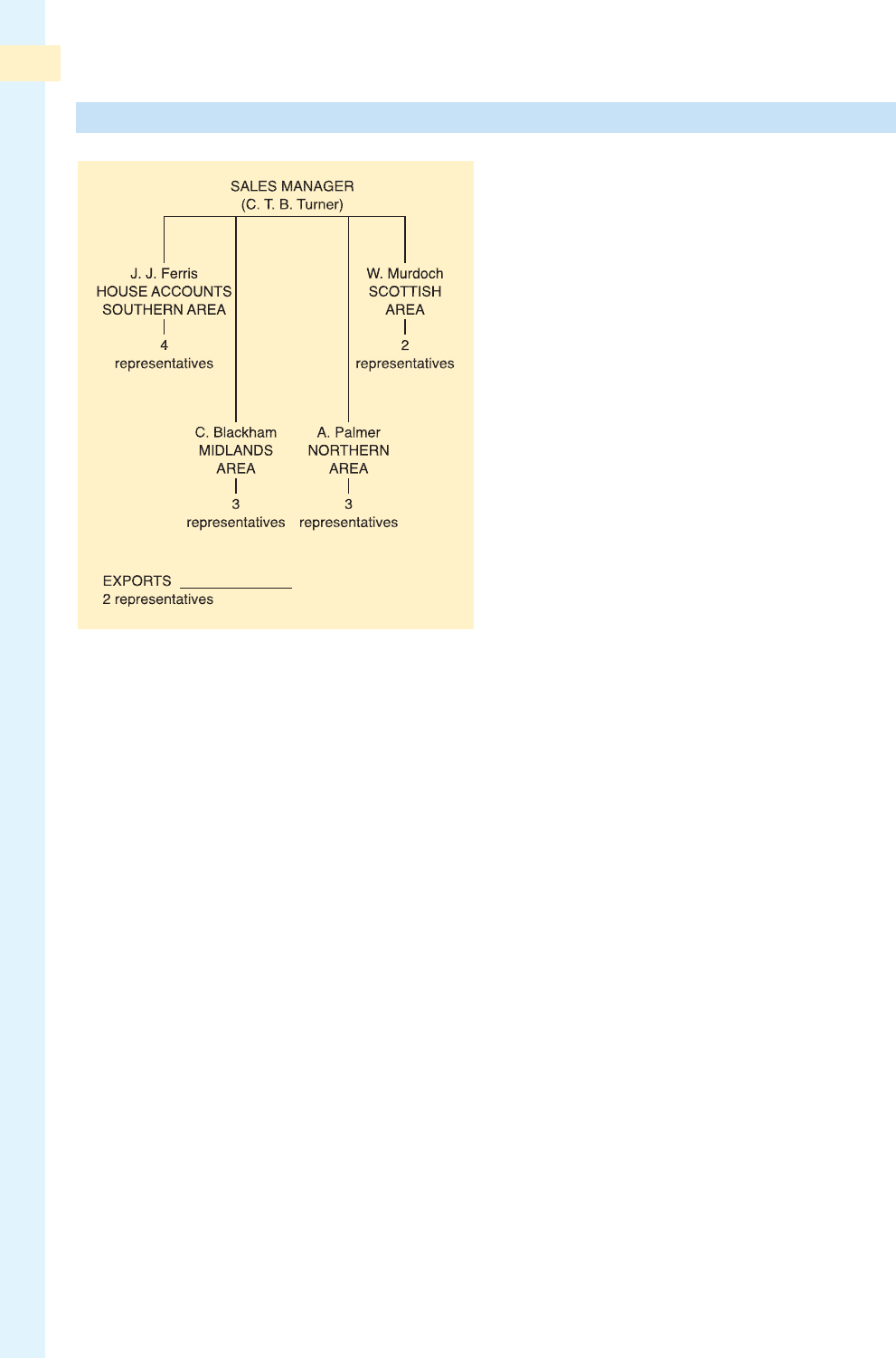Mullins L.J. Management and organisational behaviour, Seventh edition
Подождите немного. Документ загружается.


CHAPTER 21 ORGANISATIONAL CONTROL AND POWER
875
Trust
Crucial to the success of empowerment is a high level of
trust. Trust of both the boss in his subordinate and trust of the
employee in his boss and the employer.
Confidentiality is often an issue, as when an organisation
is reluctant to share with employees information on new
technology which is market sensitive. Why should people at
lower levels in the organisation be more prepared to walk out
to a competitor or to share this information with those out-
side the organisation than those at the top? Trust is two way
and if it is not demonstrated by the sharing of information it
will not take place.
There does, however, have to be a degree of caution where
the individual employee is given a high degree of freedom of
action especially, as in the Barings example, with money.
Issues like this come particularly to the fore when there is a big
emphasis on individual performance and especially when there
is a high level of individual recognition with cash bonuses. In
these circumstances it may be necessary to have audit sys-
tems but they do go against the spirit of empowerment.
If employees are in fear of their job they are much less
likely to put forward ideas for improvement. Not many people
want to participate in the loss of their own job. If they feel that
their boss is not listening, is incompetent or is taking credit
for their ideas then they will not speak out.
Teamworking
Implicit in empowerment is the need for teamworking.
By this I mean the willingness to work together for the benefit
of the organisation and its employees. The emphasis has to
be on co-operation within the organisation with the minimum
of competition between individuals and the constituent parts.
Openness will only be apparent if there is a genuine shar-
ing of information, views and rewards. Teams are of various
types. There are the main workgroup teams which occur at all
levels. At the bottom of the organisation these are usually
expected to have members who have some versatility and
can do each other’s jobs. At the top they are not expected to
have this degree of flexibility but each member is expected to
have some understanding of the functional roles of the other
members of the group.
There is also the need for teams which may be temporary
such as project teams or more permanent teams such as
those concerned with cross-functional improvements which
span the whole organisation.
Rewards
Rewards need to be tailored to the particular situation and the
needs of the people employed. Just saying ‘thank you’ is
usually the easiest and most cost-effective reward but it is all
too rare an occurrence.
Payment systems are the most commonly studied and the
aspect that causes the most difficulty. It is essential that they
are seen to be fair and equitable. Individual bonuses have been
mentioned already. Reward systems based on individual
performance with scant regard for overall organisational
performance are not conducive to empowerment. With individ-
ual performance related pay, there is a serious risk of
sub-optimisation because each person looks to satisfy his own
personal objectives. The various individual objectives may not
fit together for the benefit of the organisation as a whole.
If pay is to be based on performance the major emphasis
should be on that of the organisation as a whole – profit,
output, quality, customer satisfaction to encourage the shar-
ing of ideas and effort.
Organisations, such as those in the financial sector, may
need cash as a reward more than those in health care, where
overall performance of the organisation may be seen as a
reward in its own right. That does not mean that pay is not
always an issue.
There also needs to be equity, between the bonuses paid
to those at the top and those at other levels of the organisa-
tion. If there are ‘fat cats’ at the top and those who feel more
like slaves at the bottom then empowerment is less likely
to succeed.
Resources
It is important that, along with devolution of responsibility,
there is devolution of resources. To empower without ade-
quate resources is only likely to lead to harmful levels of
stress on the individuals.
If there are inadequate resources then individuals will be in
a position of role conflict because they will not know how to
allocate the scarce resources. Which of the many objectives
should they try to meet, which should they choose to work on
and which should they neglect?
The major investment that is required is time. Time to
think, to meet, to discuss, to agree. If there is not time to do
these things on top of one’s basic job there can be no
empowerment.
Culture
0rganisational culture is a large and very important issue and
cannot be given full coverage here but any type of change of
the BPR type will require attention being given to it.
One important requirement is that there are opportunities
to make mistakes and to learn from them. The prevailing
British culture is that someone is always to blame and there is
a need to move away from this. By analysing in an open
cooperative way the small mistakes that are made, then the
big catastrophes can be avoided.
Status in an empowered organisation comes more from
knowledge and contribution than from power, position or
function.
Personnel policies
Personnel policies are important and must be seen to support
the empowerment process. They must be owned by
the members of the organisation and not seen as an imposed
bureaucracy, which must be dealt with for someone else’s
benefit.
Appraisals are probably the most significant personnel
activity. Personnel departments tend to put the emphasis on
the individual and his shortcomings and how these might be
overcome by training and development. This kind of process
is often resisted by people and put off for as long as possible.
What is most required in an empowered organisation is
an emphasis on how well we as a group/team are doing
by reviewing together our own performance in a blame
free atmosphere.

876
PART 8 IMPROVING ORGANISATIONAL PERFORMANCE
Evaluation
We need to know how well our programme has succeeded.
Ideally there would be some objective measurements that we
can take. Unfortunately those parameters which are easy to
measure are not usually those that are the most important.
Whilst evaluation is important for business reasons it also
has a human implication and so we should be looking for
measures in both areas.
Performance measures cover output, quality, downtime,
cost, profit etc.
Human measures cover morale, attitudes, satisfaction,
absence, sickness (especially stress-related symptoms), etc.
Accurate and objective recording of all these measures
can be difficult. Many, including those relating to perform-
ance, rely on reporting by individuals and this can be subject
to bias. Some methods such as attitude questionnaires are
based on assessment within a subjective frame of reference
and this can change. For instance, people in an organisation
without empowerment may neither understand nor expect
it. When a programme of implementation is embarked upon
expectations may run ahead of progress and so a repeat
questionnaire may show lower levels of satisfaction with
the change.
Concluding remarks
An empowered organisation is one which is likely to be more
effective and successful within its market than one which is
not. It Is also likely to be more able successfully to carry out
change, either of the BPR type or one less dramatic.
No organisation is likely to achieve perfection when it
attempts an empowerment programme. I hope this article will
go some way to help organisations determine what should be
done and recognise where difficulties might arise.
(Reproduced with permission from Reg Sell, QWL News and Abstracts, ACAS, No.
133, Winter 1998, pp. 7–11.
Reg Sell, Consultant in Organisation Development, Work Organisation, Human
Factors, 5 Lyncroft Gardens, Hounslow, Middlesex TW3 2QT.)
1 What do you see as the purposes of management control in work organisations? What are
the essential elements of a management control system?
2 Detail, with your own supporting examples, the characteristic features of a good control
system. What factors are likely to influence the amount of resistance to control systems?
3 Explain fully the importance of the concept of power to management and organisational
behaviour.
4 Discuss critically the nature of pluralistic approaches to power and give your own practical
examples.
5 Discuss the main factors which are likely to affect resistance to, and the successful imple-
mentation of, management control systems.
6 How would you explain the organisational and personal relationships between a manager
and subordinate staff that is created by the process of delegation?
7 As a departmental manager explain fully how you would attempt to realise the full advan-
tages of delegation without loss of control over subordinate staff.
8 Debate critically the potential limitations and benefits of empowerment. What factors need
to be considered if empowerment is to be implemented successfully?
9 Discuss what you see as the likely consequences of a manager exercising close personal
supervision as a means of maintaining control and power over the work of subordinate
staff.
REVIEW AND DISCUSSION QUESTIONS
Management in Action 21.1 continued

CHAPTER 21 ORGANISATIONAL CONTROL AND POWER
a For your own or some other organisation, identify:
(i) the various areas of control of the activities of the organisation; and
(ii) the forms and/or strategies of control systems adopted.
b Examine a particular organisational control system of your choice and assess the extent to
which it satisfies:
(i) the essential elements of a control system; and
(ii) the characteristic features of a good control system.
Give your views, with supporting reasons, on the apparent effectiveness of the control
system, and the balance between order and flexibility.
c Attempt to discover, and explain, a particular situation in which a management control
system was welcomed by staff and/or where lack of a control system was the source of
frustration to staff.
d Comment critically on the operation and influence of financial and accounting systems of
control.
The organisational politics questionnaire
Answer each question ‘mostly agree’ or ‘mostly disagree’, even if it is difficult for you to
decide which alternative best describes your opinion.
Mostly Mostly
agree disagree
1 The boss is always right. ■■ ■■
2 It is wise to flatter important people. ■■ ■■
3 If you do somebody a favour, remember to cash in on it. ■■ ■■
4 Given the opportunity, I would cultivate friendships with powerful people. ■■ ■■
5I would be willing to say nice things about a rival in order to get that ■■ ■■
person transferred from my department.
6 If it would help me get ahead, I would take credit for someone else’s work. ■■ ■■
7 Given the chance, I would offer to help my boss build some shelves for ■■ ■■
his or her den.
8I laugh heartily at my boss’s jokes, even if I do not think they are funny. ■■ ■■
9Dressing for success is silly. At work, wear clothing that you find to be the ■■ ■■
most comfortable.
10 Never waste lunch time by eating with somebody who can’t help you ■■ ■■
solve a problem or gain advantage.
ASSIGNMENT 1
ASSIGNMENT 2
877

878
PART 8 IMPROVING ORGANISATIONAL PERFORMANCE
Mostly Mostly
agree disagree
11 I think using memos to zap somebody for his or her mistakes is a good ■■ ■■
idea (especially if you want to show that person up).
12 If somebody higher up in the organisation offends you, let that person ■■ ■■
know about it.
13 Honesty is the best policy in practically all cases. ■■ ■■
14 Power for its own sake is one of life’s most precious commodities. ■■ ■■
15 If I had a legitimate gripe against my employer, I would air my views ■■ ■■
publicly (for example, by writing a letter to the editor of a local newspaper).
16 I would invite my boss to a party at my home, even if I didn’t like him or her. ■■ ■■
17 An effective way to impress people is to tell them what they want to hear. ■■ ■■
18 Having a high school or skyscraper named after me would be an ■■ ■■
incredible thrill.
19 Hard work and good performance are usually sufficient for career success. ■■ ■■
20 Even if I made only a minor contribution to a project, I would get my ■■ ■■
name listed as being associated with it.
21 I would never publicly correct mistakes made by my boss. ■■ ■■
22 I would never use my personal contacts in order to gain a promotion. ■■ ■■
23 If you happen to dislike a person who receives a big promotion in your ■■ ■■
firm, don’t bother sending that person a congratulatory note.
24 I would never openly criticise a powerful executive in my organisation. ■■ ■■
25 I would stay late in the office just to impress my boss. ■■ ■■
Details of scoring and interpretation of the Organisational Politics Questionnaire will be
provided by your tutor.
Assignment 2 continued

CHAPTER 21 ORGANISATIONAL CONTROL AND POWER
OBJECTIVES
Completing this exercise should help you to enhance the following skills:
Assess the difficulties of organisational controls in a rapidly changing environment.
Prepare a written management report.
Develop further your presentation and debating abilities.
EXERCISE
Given the demands for flexible structures and rapid rates of change in many modern organi-
sations, control has become a very complex issue. Working in small self-selecting groups,
you are required to:
1 Write a brief management report (no more than 800 words) in which you look at the bene-
fits/drawbacks/interesting points that will be associated with an attempt to simplify control
systems in a medium-sized multinational operation. You can add any detail you wish to pro-
file your ‘imaginary’ company but keep it realistic, consistent and in line with the question.
2 Present your completed report to the rest of the class and lead a discussion arguing the
case for its adoption.
DISCUSSION
■ What were the main issues and difficulties that emerged from preparing your report?
■ To what extent do you feel there is a danger of organisations placing too much emphasis
on financial and quantitative systems of control?
■ What is the ultimate judge of the effectiveness of control systems?
Visit our website www.booksites.net/mullins for further questions, annotated weblinks,
case material and Internet research material.
PERSONAL AWARENESS AND SKILLS EXERCISE
879

880
PART 8 IMPROVING ORGANISATIONAL PERFORMANCE
CASE STUDY 21.1
The enthusiastic delegator: the consequences of promoting
beyond ability?
When Charles Turner was told, on his fortieth birth-
day, that he was to be promoted to manager of the
Electrical Insulation Materials Sales Department of
Climax Fibre and Textile Company Limited, his grat-
ification was strongly tempered by doubts about his
own personal adequacy for the job.
INITIAL DOUBTS
Climax had only started to market its ‘Highohm’
range of electrical insulation materials two years
previously. Though the Highohm products were not
easy to sell – their small but definite technical
advantages over competing products were more or
less cancelled out by higher prices – their entry to
the market had been spectacularly successful.
Existing production capacity was already almost
fully sold, and a big new plant, which would more
than double capacity, was under construction and
expected to start up in six to nine months’ time.
Turner was left in no doubt by his sales director
that, as manager, he would be expected, through his
small sales force, to ensure that sales of Highohm
products continued to increase and that most of the
extra capacity of the new plant was sold within no
more than a year of production commencing. In
addition, he was expected personally to service the
‘house accounts’ – five very large customers who
between them were responsible for over 25 per cent
of all Highohm purchases. The biggest of them,
Bucks Electrical Cables, was reputed to be extremely
awkward to deal with, and one of Turner’s immedi-
ate worries in his new appointment was that he
would lose this account and 10 per cent of his sales
in one dreadful moment of catastrophe.
This was not his only worry. He wondered how
Jim Ferris, who managed the Northern and Scottish
Area, would react to his appointment. Turner did
not know Ferris very well, though his predecessor as
sales manager, Frank Spofforth, had often spoken of
him in glowing terms. He was a self-confident man
in his late twenties, reputedly very dynamic, highly
intelligent, and a brilliant salesman of industrial
products. He had achieved remarkable success in
running the Northern and Scottish Area: 44 per cent
of all Highohm sales were made there, as against
only 28 per cent from the South and Midlands Area,
which Turner had managed prior to his promotion.
(Remaining sales came from the ‘house accounts’
and from exports.) Turner, in fact, wondered why
he, and not Ferris, had been promoted.
A further worry for Turner was the new plant. He
had always felt that it was much too big and he was
extremely dubious that more than a small part of
the extra capacity it provided could be rapidly taken
up in increased sales.
Most of all, however, Turner doubted his own
abilities. He knew that he was thorough, methodi-
cal, painstaking and cautious, but these were hardly
the qualities essential for managing a sales opera-
tion. His caution tended to make him slow and
hesitant. He rarely produced new ideas and he dis-
liked making decisions unless he had all the facts
and had gone over them several times. He thought
he was by nature fitted to keep an existing success-
ful operation going, but he gravely doubted his
ability as a leader of a dynamic pioneering effort.
Turner had hoped that he would have a long
period of changeover working alongside his prede-
cessor, Spofforth. In fact, Spofforth was urgently
wanted in the new post to which he had been pro-
moted, and Turner, within a few days of being told
of his new appointment, found himself in sole com-
mand. The organisation which he inherited was as
illustrated in Figure 21.10.
Figure 21.10

CHAPTER 21 ORGANISATIONAL CONTROL AND POWER
One of his immediate problems was to fill the
South and Midlands Area manager vacancy. There
were others, however; the plant had developed an
intermittent defect which slowed production and
meant that many deliveries were late. Several cus-
tomers, notably Bucks Electrical Cables, were
protesting vigorously. Furthermore, the sales direc-
tor wanted two major reports. Each, Turner thought,
would take at least a week of his time and severely
tax his ability to produce new ideas and construc-
tive proposals as well as his ability to write lucidly
and elegantly. Yet he could not delay their produc-
tion, or make anything less than a first-rate job of
them, for fear of beginning his new appointment by
disappointing the sales director.
DELEGATION OF DUTIES
Turner decided that he would ask Ferris to come to
London for a few days. Apart from enabling him to
obtain Ferris’s views on the problems he faced, it
would give him the opportunity to try to smooth
out any resentment at his promotion.
Much to Turner’s gratification, Ferris was extremely
helpful. He made short work of Turner’s reports. He
was an abundant producer of ideas, and soon
sketched out what seemed to Turner an eminently
satisfactory set of proposals for both reports. He then
offered to draft the reports for Turner, and dictated
both during one afternoon. Turner, who normally
made several laborious pencil drafts before attempt-
ing to finalise a report, was astonished at Ferris’s
facility. The drafts seemed to him quite perfect, and
he signed them and sent them to the sales director.
Ferris next offered to go to ‘pacify’ Bucks
Electrical Cables. Turner demurred saying it was his
duty to deal personally with this problem, but Ferris
insisted that Turner was too busy with managerial
problems to spare the time. Turner was secretly
relieved at not having to deal with these awkward
customers. Ferris later telephoned to say that he had
just taken three Bucks Electrical directors to lunch
and they had all parted the best of friends.
Finally, Ferris put forward an idea about the area
manager vacancy. He, Ferris, would take over the
South and Midlands Area and his senior representa-
tive in the north, Palmer, could be promoted
Northern and Scottish Area manager. Turner was
strongly attracted by the prospect of having Ferris’s
services ‘on tap’ in London, and readily agreed to
this proposal.
Ferris tackled his new job as South and Midlands
Area manager with characteristic vigour and sales
were soon moving upwards – indeed, the produc-
tion people had to make Herculean efforts to
squeeze out the additional product needed to cope
with the increased orders. He found time, however,
to give substantial personal help to Turner, and
Turner came increasingly to rely on him. Whenever
he had a problem to solve, a decision to make, or a
report to write, he consulted Ferris. Normally it was
Ferris who supplied the solution, suggested the de-
cision to be adopted, or wrote the report.
Turner often felt guilty about the extent to which
he relied on Ferris and sometimes apologised to him
for ‘leaning’ so much on him. Ferris, however, had a
soothing answer. This, he explained, was the normal
process of delegation. It would be quite wrong for
Turner to be continually involved in detail prob-
lems; his function was to formulate the problems
and leave his subordinates to solve them. Gradually,
Turner came to accept the idea that his relationship
with Ferris was no more than sound management;
he even began to boast to his manager friends about
the ‘delegation’ that he practised and the trouble-
free life he led.
THE NEW PLANT AND THE REORGANISATION
Thus, as the start-up of the new plant became immi-
nent, Turner had a plan ready – Ferris’s plan. Several
new representatives had been recruited and Britain
was to be divided into four sales areas – South,
Midlands, North and Scotland. Ferris would continue
to look after the South and Palmer the North; a
nominee of Ferris, Murdoch, would manage
Scotland; the Midlands Area was to be managed by
Blackham, who was an older, senior representative
recently transferred to Electrical Insulation Sales
from another department. A new two-man technical
service section was to be formed at the London office
to service customers throughout Britain; and an
additional export representative was to be engaged
to participate in a drive for more overseas sales.
Ferris took on a wide range of new responsibilities
through the reorganisation. Apart from managing
the southern area and continuing to give personal
assistance to Turner, he had persuaded Turner that
he should in future service the ‘house accounts’. He
would also ‘keep an eye on exports’, and would
accompany the export representatives on flying
visits overseas when agents needed gingering up. It
had been Ferris’s idea that a technical service section
should be formed and it was natural that he should
direct its work. To free him from too much detailed
work in managing the southern area, he was given
an extra senior representative. The new organisation
was therefore in practice as shown in Figure 21.11.
This organisation was not shown on the pub-
lished charts, since both Turner and Ferris agreed
881

PART 8 IMPROVING ORGANISATIONAL PERFORMANCE
that it would look better if exports and technical
service were shown as formally responsible to Turner.
The first few months for the new organisation
were difficult. The new plant came into production,
but sales hardly rose at all. Ferris visited all the areas
to coach representatives and accompany them on
calls to major potential customers. He sent the tech-
nical service representatives out to scour the country,
making contact with the development staffs of pos-
sible users of Highohm materials. He made numerous
trips to European and Commonwealth countries to
exhort the overseas agents to greater endeavour.
At length, sales began to increase – at first slowly,
but then in a steep curve that took the new plant up
to 80 per cent of capacity. Exports were responsible
for the biggest part of the increase, but all the UK
areas showed good growth, with the Midlands
slightly ahead of the others.
Turner, who had only been saved from utter
despondency during the months of difficulty by
Ferris’s unvarying confidence and optimism, now
began to regain his serenity. He was congratulated by
the board on the achievement of his department in
selling the output of the new plant, and was given a
substantial increase in salary. He became rather more
self-confident, though he would still take no deci-
sion of importance without reference to Ferris.
STRAINS IN THE ORGANISATION
The area managers soon discerned something of the
extent to which Turner depended on Ferris. Palmer
and Murdoch, who were both protégés of Ferris,
regarded it as natural. Blackham, the Midlands Area
manager, however, began to make it clear that he
strongly disapproved of what he called the ‘imbal-
ance of power’ in the department. He pressed for
more responsibility to be delegated to him. In par-
ticular, he asked to take over the two ‘house
accounts’ in the Midlands Area. He also asked that
all the area managers should be consulted before
important decisions were taken.
On Ferris’s advice, Turner told Blackham that he
had enough to do already in developing sales in the
Midlands without taking over the ‘house accounts’.
In any case, these important customers were best
served by someone they knew and trusted. Turner
and Ferris agreed, however, that more consultation
with the area managers was desirable and monthly
‘area manager meetings’ were instituted.
These did little to decrease Blackham’s dissatisfac-
tion. Though Turner nominally took the chair, it
was Ferris who really conducted the meetings.
Blackham resented this, but what riled him still
more was that it was usually obvious that, irrespec-
tive of what the other managers said, Turner was
going to make his decisions according to whatever
advice Ferris gave him. Often, indeed, it was clear
that Turner and Ferris had already discussed and
decided issues before the meeting.
Blackham showed his dissatisfaction with the
meetings by taunting Ferris and Turner with ironic
asides and frequent sardonic laughter. This did not
appear to worry Ferris, but it upset Turner.
Accordingly, while Ferris was away on a trip
abroad, Turner sent for Blackham and appealed to
him to co-operate with himself and Ferris. Blackham
bitterly attacked Ferris, saying that he had deliber-
ately taken advantage of Turner’s good nature to
build up his own personal ‘empire’ within the
department. Turner protested that this was not the
case; it was just that he believed in delegation and
since Ferris was exceptionally able, experienced, vig-
orous and willing to accept responsibility, it was
natural that considerable responsibility should be
delegated to him.
Blackham laughed sardonically. Turner did not
delegate responsibility, he said, he abdicated it.
Ferris did not just accept responsibility, he made a
series of takeover bids for it.
Turner defended the system. At least it worked, he
said. The department had great successes to its credit.
Case study 21.1 continued
TECHNICAL SERVICES
2 representatives
Figure 21.11
882

CHAPTER 21 ORGANISATIONAL CONTROL AND POWER
Blackham insisted that he was just as able and
willing to accept responsibility as Ferris. It was
unfair of Turner to delegate only to Ferris. The other
area managers should be given the chance to show
what they could do.
The meeting ended inconclusively, but Turner,
who prided himself on being fair-minded, was half-
persuaded that Blackham and the other area
managers should be given more responsibility. As
soon as Ferris returned, he consulted him on what
changes in organisation might be made.
Ferris strongly opposed giving any further respon-
sibility to the area managers, especially to Blackham,
whose recent behaviour, he said, must make his
judgement and temperament strongly suspect. What
was wrong in the department was that the particular
responsibilities he himself carried were not accompa-
nied by appropriate formal authority. Ferris therefore
proposed that he should be appointed deputy man-
ager of the department. He was not seeking extra
salary and would be quite content with only a status
promotion, but he felt the time had come for it to be
made clear that he was senior to Blackham and the
other area managers.
This idea appealed to Turner. He felt it was only
just that Ferris should be given some form of pro-
motion. He also believed that promotion for Ferris
might silence some of Blackham’s criticisms.
He therefore went to ask the sales director for per-
mission to create the new position of deputy
manager, and for Ferris to be promoted to it. The
sales director demurred. He said he felt that Turner’s
department was too small to warrant the appoint-
ment of a full-time deputy manager, and, in any case,
Ferris was rather young to be promoted to such a post
over the heads of older men such as Blackham.
Turner pressed his case by outlining the range of
duties undertaken by Ferris. The sales director ques-
tioned him closely upon this, and Turner was forced
to reveal a great deal about the organisation of the
department, and of his relationship with Ferris. He
also mentioned his troubles with Blackham.
The sales director was obviously not at all pleased
with what he had discovered. He said, ‘I have always
assumed that since your department has produced
good results, its organisation, staffing and personal
relationships have been satisfactory. Now I must
consider whether or not I should intervene and
impose changes.’
YOUR TASKS
Consider the following questions:
(a) When an inadequate manager is supported by a
more able subordinate, is it likely that the subordi-
nate will become the effective manager of the
unit? Is it desirable? If not, what steps (apart from
replacement of the manager) could be taken to
prevent it?
(b) Where are the boundaries between proper delega-
tion of authority and abdication of responsibility?
Was Turner, in fact, guilty of the latter?
(c) Where does willingness to accept responsibility
end and personal ‘empire building’ begin? Was
Ferris an ‘empire builder’? If so, with what motives?
(d) How far can a theoretically undesirable system be
justified on the ground that ‘it works’?
(e) Should the sales director intervene in Turner’s
organisational and personal relations problems? If
so, what should he do?
883
CASE STUDY 21.2
Alpha to Omega: the effects of financial management on
company performance
You are the recently appointed chief executive of
the Omega organisation. Your organisation is
located in a large town and comprises five operating
units and a head office with personnel, client ser-
vice, management services and finance divisions. It
employs a total of 5000 people.
The organisation has been successful in recent
years. Clients report receiving good service and
the financial performance of the organisation is
good. The organisation has been run on centralised
lines with tight financial controls applied by the
Finance Division.
You have concluded that a more decentralised
approach to management is needed, mainly to give
unit managers greater discretion. The clients served
by the five operating units have different and

PART 8 IMPROVING ORGANISATIONAL PERFORMANCE
changing needs. You feel that greater discretion will
allow a more flexible response to these various
needs at unit level.
One of the ways you have decided to achieve
decentralisation is to decentralise the management
accounting function. Each operating unit will have
a management accountant responsible to the unit
general manager for operational matters. The
finance director will retain overall professional
responsibility for the finance discipline, for financial
accounting, planning and reporting. Unit manage-
ment accountants will therefore report to the
finance director for professional purposes but to the
relevant general manager for operational purposes.
In line with these changes, the finance director
has proposed a number of changes to the role of the
head office Finance Division. In particular, he
wishes to encourage a more constructive and co-
operative approach by finance staff to staff in other
divisions. In the past, finance staff have identified
inefficiencies in the utilisation of resources and gen-
erally called the various unit management teams to
account. He wishes to move towards a more prob-
lem-solving style through which finance staff help
others both to identify problems and develop solu-
tions. As part of this, he wishes to see a change in
the extent to which the Finance Division relies
solely on traditional financial control techniques,
often as a means of preventing change and limiting
expenditure. Finally, he wishes to reduce the use of
financial and accounting jargon.
These are significant organisational and profes-
sional changes. You accept the need for them and
are fully committed to decentralisation. However,
you are concerned about a number of issues.
Case study 21.2 continued
YOUR TASKS
Write a paper for circulation to your top management
colleagues covering the following issues:
(a) What are likely to be the main problems and advan-
tages of decentralised management accounting?
(b) What measures should be adopted to support the
changed professional role for the Finance Division?
(c) What actions should be taken with the top man-
agement team (the general managers of the five
operating units, and the directors of the person-
nel, client service, management services and
finance divisions) in preparation for the changes?
884
1. Mullins, L. J. ‘Improving Management Control
Systems’, Management Accounting, vol. 61, no. 5, May
1983, pp. 30–2.
2. Tannenbaum, A. S. Control in Organizations, McGraw-
Hill (1968), p. 3.
3. Berry, A. L., Broadbent, J. and Otley, D. (eds)
Management Control: Theories, Issues, and Practices,
Macmillan (1995), p. 18.
4. Tulgan, B. ‘Winning the Talent Wars’ in Crainer, S.
and Dearlove, D. (eds), Financial Times Handbook of
Management, Second edition, Financial Times Prentice
Hall (2001), p. 351.
5. Payne, J. and Payne, S. Letting Go Without Losing
Control, The Institute of Management/Pitman
Publishing (1994), p. 161.
6. For example, see: Mullins, L. J. and Banks, G. ‘How
Well am I Doing?’, Euhofa Journal, Association
Internationale des Directeurs d’Écoles Hoteliers,
Lausanne, Switzerland, no. 18, June 1986.
7. Wilson, F. Organizational Behaviour: A Critical
Introduction, Oxford University Press (1999), p. 103.
8. Lawler, E. E. ‘Control Systems in Organizations’, in
Dunnette, M. D. (ed.) Handbook of Industrial and
Organizational Psychology, Rand McNally (1976).
9. Zimmerman, J. ‘The Different Centres of Control’,
Mastering Management, Financial Times/Pitman
Publishing (1997), p. 21.
10. For examples, see Tibballs, G. Business Blunders,
Robinson Publishing (1999).
11. ‘Untapped Potential: The barriers to optimum cor-
porate performance’, Proudfoot Consulting, October
2002.
12. Robbins, S. P. Essentials of Organizational Behavior,
Third edition, Prentice-Hall (1992), p. 6.
13. See, for example: Salaman, G. Class and the
Corporation, Fontana (1981).
14. For a discussion on management control and an
understanding of behaviour at work, see, for ex-
ample: Johnson, P. and Gill, J. Management Control
and Organizational Behaviour, Paul Chapman (1993).
15. Drummond, H. Introduction to Organizational
Behaviour, Oxford University Press (2000), p. 25.
16. Lorange, P. ‘Ultra-Rapid Management Processes’ in
Chowdhury, S. Management 21C, Financial Times
Prentice Hall (2000), p. 157.
17. Gospel, H. F. and Littler, C. R. (eds) Managerial
Strategies and Industrial Relations, Heinemann (1983).
NOTES AND REFERENCES
